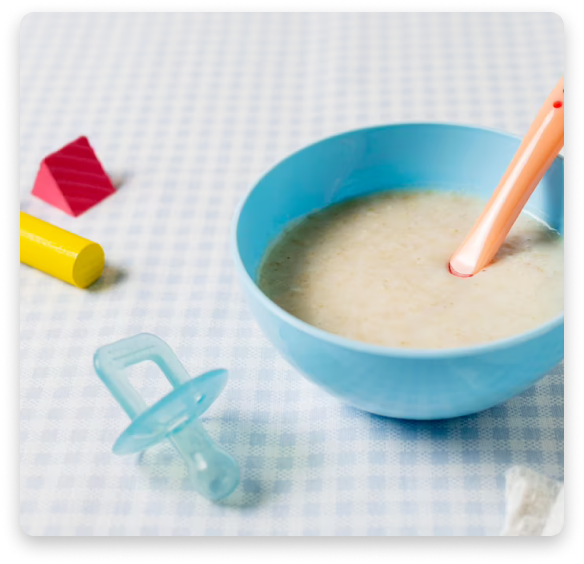You may also like…
"Weaning off feeding is a bittersweet moment in motherhood, a time to let go of the past and embrace the future."
When to wean off feeding and why?
By 6 months, complementary feeding is suggested. By this age a baby who has exclusively been breastfed now needs additional nutrients, which include protein, iron and zinc.
What to introduce to the child?
Cereals are introduced generally around 6 months of age. Initially they are mixed with fluids such as breast milk, formula or water but later fruits are added. Single grain iron fortified cereals are recommended first (rice, oatmeal or barley), this helps identify any potential allergies that the baby might have. Infants do not need juices, but if juice is given it should be started after one year (given in a cup and limited to 4 oz (for toddlers 1-3 yr) and should be sugar free, in addition, they should only be offered with meals. If these recommendations are not followed, the child will not have an appetite to take a healthy intake of breastmilk or nutritious foods. In addition, it is important to understand that too much juice will cause diaper rash, diarrhea and weight gain. A baby should never be put to sleep sipping something like juice, milk or formula as this will cause early childhood carries previously known as infant bottle tooth decay.
cup and limited to 4 oz (for toddlers 1-3 yr) and should be sugar free, in addition, they should only be offered with meals. If these recommendations are not followed, the child will not have an appetite to take a healthy intake of breastmilk or nutritious foods. In addition, it is important to understand that too much juice will cause diaper rash, diarrhea and weight gain. A baby should never be put to sleep sipping something like juice, milk or formula as this will cause early childhood carries previously known as infant bottle tooth decay.
During the 4-6 month stage of a baby, it is recommended to separate mealtimes and bedtimes. After 6 months of age, other foods may be introduced as well, once your baby shows signs of readiness to solid feedings. Solid cereals are introduced first. Once your baby learns to eat solid cereals, you can start to introduce other foods, one at a time, monitoring any allergic reaction such as diarrhea, vomiting or rash. In general meats and vegetables provide more nutrients, vitamins and minerals than do fruits and cereals.
Tips to remember while bottle-feeding:
- Never leave your child unattended while she/he is eating
- Baby should be fed 4 ounces of solids at each daily meal, initially
- Avoiding foods that may be more allergic to baby (dairy, peanuts, fish, eggs) has no supporting evidence, instead early introduction may be beneficial.
- All food should be cut in small pieces, should be easy to swallow so the baby doesn’t choke
- Honey should not be given to a baby before 1 year to avoid the risk of infant botulism
- Delaying the introduction of solid foods may cause nutritional deficiencies, oral sensory issues (texture and oral aversion)
Signs of readiness to eat the food by the baby include:
- Ability to hold head up
- Gaining weight and growing in size (about double their birth weight)
- Opens mouth wide open showing interest in foods
- Stopping to eat when their mouths are full
- Ability to track a spoon
- Ability to take food from a spoon
Powered by Froala Editor







